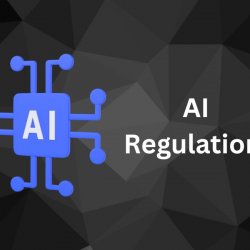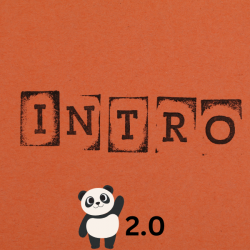How to prepare for the Python interview


python interview
Review Python Syntax
First let’s start with a quick overview of Python syntax. It is quite basic, as it is designed to be easy to learn but powerful enough for complex applications. The syntax is case sensitive, and white space and indentation are important in properly structuring code.
You will also want to review relevant operators in Python including arithmetic operations, assignment operators, comparison and logical operators, strings and tuples, and bitwise operations. You should also be familiar with the rules for variable naming in python— they can be made up of letters, digits or underscores but can’t begin with a digit or contain spaces or special characters other than underscore.
Formatting strings and raw inputs are also important elements of Python syntax –– learn how to work with string formatting using the % operator and string methods like .format(). In addition, you’ll need to know how to use control flow and loops such as “if” statements, “for” loops and “while” loops so that you can better understand how programs flow from start to finish.
Finally, understand functions & modules–– know how a function works in terms of module importing, returning values and parameters setting as well as exception handling–– which describes how errors should be handled while compiling code.
Study Commonly Asked Questions and Answers
To help you get ready for your upcoming Python interview, we have outlined some tips and techniques below.
Preparation:
When preparing for your Python interview, there are several steps you should take. First off, make sure you have a good understanding of the basics of the language. Brush up on topics such as core concepts, data structures, ObjectOriented Programming (OOPS), and functional programming principles. Also, familiarize yourself with the various libraries used in Python programming such as NumPy and Pandas. Don’t forget to study common coding patterns as these will most likely be tested during the interview too. Data Science Course in Delhi
Questions & Answers:
Most employers use technical interviewing methods to test your problem solving skills in Python. They may ask questions related to basic concepts or more complex subjects such as algorithms and design patterns. Familiarize yourself with commonly asked questions so that you can adequately answer them when they come up during the interview. Additionally, practice answering potential questions out loud so that you become comfortable talking about technical subjects in an interview setting. Lastly make sure you are confident in your answers as employers don’t want someone who looks unsure of themselves etc.
Familiarize Yourself with the Interview Process
First, it’s important that you take the time to properly prepare for each interview. Read the job description closely and research any relevant companies or industries that are involved. Additionally, practice common Python syntax questions as well as your responses to potential questions that could come up during the interview. To make sure your answers are up to par, consider taking part in mock interviews or practicing with a friend or mentor.
Furthermore, try to anticipate questions before they’re asked and think of relevant examples from past experiences that you can draw upon in order to highlight your skillset. It can also be helpful to prepare questions of your own so that you can ask specific inquiries about the role and show off your knowledge base as well as enthusiasm for the position.
Finally, dress professionally and make sure you arrive at least 10 minutes early. This helps demonstrate respect and shows the interviewer that you took their time seriously. In addition, showing up a bit earlier gives you an opportunity to shake off any nerves or stress before the actual meeting begins. Data Analyst Course in Delhi
Practice Coding Challenges
Types of Challenges
When it comes to practice coding challenges, there is no shortage of options. From multiple choice questions to timed programming tasks, there is something for everyone. Some popular types of coding challenges include algorithmic problems, brain teasers, school assignments, online tutorials, and even open source projects. It’s important to familiarize yourself with a variety of different types of coding challenges as you prepare for an interview.
Benefits of Coding Challenges
Coding challenges can be beneficial in several ways. Firstly, they can help you gauge your technical skills and improve them in a meaningful way before the interview. Secondly, they can help you develop a better understanding of coding logic and syntax. Lastly, doing practice problems can give you the confidence that you need to ace your upcoming Python interview.
Preparing for Challenges
The key to preparing for a challenge is making sure that you are familiar with the language or framework being tested. This means brushing up on the basics such as loops, variables, classes and other key components before going into the challenge itself. Additionally, it might be beneficial to look through some previous coding projects or work samples if available as they could provide some insight into what kind of challenge is coming up. Additionally, some practice problems may require working with external libraries or data sets so make sure to have all required materials ready ahead of time.
Consider Time Management Strategies
Scheduling: One of the most important things to do before a job interview is to create a schedule that will help keep you organized. Make sure to block out specific times for studying or practicing coding challenges, researching the company, and preparing answers for potential questions. Planning ahead with your time can ensure that you’re not cramming at the last minute and feeling overwhelmed on the day of the interview.
Planning: Once you have a comprehensive schedule in place, it’s time to start planning exactly what steps you want to take in order to be successful during your interview. Think about what topics or skills need extra attention and plan accordingly so that when it comes time for the actual interview, there are no surprises.
Prioritizing: With your plan in place, you can then prioritize which tasks should come first or should be done right away versus those that can’t wait until later on down the line. This method of organizing your prep work can make sure that nothing falls through the cracks and also helps keep distractions from interfering with your goals for preparation.
Goal Setting: Setting achievable goals is key when it comes to passing any type of exam or assessment. Take some time to reflect on what success looks like for this particular Python interview and set goals accordingly so you stay motivated during your preparation period.
Refresh Your Knowledge of OOP Principles & Design
Start by familiarizing yourself with OOP principles. Understand the basic tenets of OOP such as inheritance, abstraction, polymorphism, and encapsulation. These four fundamental concepts should be second nature when walking into a Python interview.
Next, familiarize yourself with design patterns. Design patterns are simple solutions to common development problems that can help make coding efficient and organized. Make sure you understand the naming conventions for patterns—it’s important to know the difference between a Singleton pattern or Factory pattern when writing code.
Additionally, practice critical thinking skills when it comes to code reviews and unit testing. Ensure that each program runs correctly in multiple scenarios and runs efficiently by doing small scale tests on code written by others as well as your own code. Your interviewer will want to see that you have done thorough reviews on any code that needs fixing or refactoring.
Finally, take note of readability when it comes to coding style. Make sure that your syntax is correct and concisely written so that anyone else could understand what is written without much difficulty. This means avoiding unnecessary variables and using proper white space formatting which makes it easier for other developers who may work on the same project in the future.
Prepare Non-Technical Questions to Ask Your Interviewer
- Understand the job description: Take the time to really understand the job description and what your role is expected to involve. This will help you focus your studying and prepare relevant questions.
- Research the company and interviewer: Get to know the company, its work culture, values, and goals. Also look into who will be interviewing you (if they have a LinkedIn profile that’s a great start!). This will give you an insight into what kind of questions they may ask and how best to answer them.
- Practice responding to common Python questions: Most interviews involve some form of ‘coding challenge’ where you must respond to certain problems or scenarios using Python programming language. You can prepare for this by practicing online or taking part in coding boot camps or hackathons.
- Develop an understanding of Python fundamentals: Knowing the basics, such as data types, algorithms, and control structures should form part of your background knowledge when preparing for an interview. Make sure you have these concepts firmly secured in your memory before attending any interviews.
- Create questions related to the role & environment: Think about specific points related to the role itself such as how it fits with the rest of the team and what development projects could be undertaken within that role. Having informed questions written down in advance shows initiative and interest in working at that particular organization too.
Follow these steps to confidently prepare for your next Python coding interview
First, make sure to brush up on the fundamentals of the language. This includes understanding core concepts such as variables, expressions, conditionals, loops, and functions. It’s also helpful to become familiar with common syntax and data structures.
Next, get acquainted with popular Python libraries that you may be asked about in the interview. Knowing these libraries is crucial as they provide access to specialized tools that can be used in many projects.
In addition, it’s wise to study the most common algorithms that are applied in Python programming. Being able to explain how these algorithms work and draw out accurate diagrams will give you an edge in the conversation. Data Science Institute in Delhi
But don’t forget about hands on practice! Solving coding challenges is essential for developing problem solving skills and deepening your knowledge of the language. Additionally, you should research any specific company requirements or expectations they may have from their coders so you can demonstrate your ability to meet them in the interview.
Finally, rehearse potential questions and answers prior to the exam day. This will help build your confidence and ensure that you are well prepared when it comes time for the big event! Additionally, try anticipating potential problems that may arise during development when discussing solutions with employees—this reflects a deeper understanding of programming fundamentals and will surely impress your future employers.






Ingen kommentarer endnu